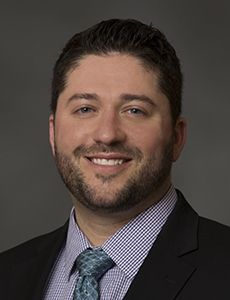Sponsored Content by One Call
Eliminating Roadblocks to Recovery for Injured Workers Begins with Efficiency in Diagnostic Testing

The road to recovery for injured workers is often fraught with obstacles. In cases that require diagnostic examinations before physicians can devise a treatment plan, ensuring the exam is done as quickly as possible is perhaps the most important hurdle to overcome.
Together with its network of diagnostic providers, One Call, an innovation leader within workers’ compensation, has embraced the power of automation to clear the path to recovery, doing so for more than 25% of its diagnostics referral base.
Realizing the significant benefits, One Call has made heavy investments on this front and is fully committed to the expansion of these programs.
“It’s [about] ensuring injured workers are getting the care they need when they need it and not later because of something that may be impeding the scheduling of their diagnostic exam,” said Darren Barr, VP, product management at One Call.
Delays to care have the potential to exacerbate workers’ injuries, increase disability expenditures for employers, and ultimately result in longer time out of work. Here are a few steps that the team at One Call has made to improve the speed and quality of care for workers.
Improving Speed and Efficiency for Better Experience

Darren Barr, VP, Product Management, One Call
Since the onset of the pandemic, appointment availability in diagnostic centers has reduced significantly.
Staff shortages, enhanced cleaning protocols and exorbitant no-show rates have made securing diagnostic appointments for injured workers more complicated than ever. One Call is leveraging technology that connects directly into a diagnostic provider’s scheduling system and is then able to schedule first-available appointments. This feature dramatically reduces the back-and-forth communication historically needed to schedule a single appointment.
“Instead of waiting on hold for extended periods with the injured worker, we can quickly look into a diagnostic testing facility’s schedule, ensure we’re getting the soonest available appointment that can accommodate that patient, and confirm it. It’s that simple.” Barr said.
“The faster injured workers can get their diagnosis and treatment plan, the faster things can move along,” he added.
Text Messaging Keeps Communication Flowing
Before an injured worker can be scheduled, a solid line of communication must be established. And with the rise in scam calls, reviewing vital pre-screening information with an injured worker over the phone is more challenging than ever.
Injured workers do, however, respond to text messages, as One Call’s recent results with expanded use of SMS text messaging revealed. After One Call began deploying automated SMS text messages to all injured workers in their care, response rates went up 320%.
“We can actually communicate with these individuals and get all of their pre-screening information, availability, and other necessary details via text message,” Barr said.
In addition to capturing personal details, SMS texts enable One Call’s care team to determine other factors, such as claustrophobia or metal implants, that influence the type of diagnostic exam, as well as the facility best suited for the injured worker.
“There really has to be a one-to-one match,” Barr stated.
In addition to appointment reminders and confirmations, SMS text capabilities enable One Call’s care team to keep a claim moving by confirming with the injured worker when their diagnostic exam has been completed.
No Need to Fax: Automate Diagnostic Reporting Instead

Linda Colsen, Senior Vice President of Product Management, One Call
Often, workers’ comp care teams wait days to receive a medical report from a provider simply because it must be manually sent by a provider’s staff member via fax or email. This situation is unique to workers’ compensation, where the claims professionals require the medical reports, unlike other healthcare segments where only the physician requires those records.
“The ability to automate this function is removing that requirement from those facilities having to step outside of their normal process,” Linda Colsen, senior vice president of product management at One Call, said.
“We’re connecting directly with those systems so that as soon as the appointments are completed and a medical report is available, it’s automatically transferred to us,” Colsen added. “We’re seeing medical reports come back to us in about 24-hours on average for those connected providers.”
If One Call has not received the diagnostic exam report, the care team follows up with the provider right away, avoiding further delays.
“This capability has created a lot of efficiency and speed to get these injured workers taken care of,” Barr said. “And it further aids in injured worker recovery, because we’re able to quickly assess why there might be a delay and get the case back on track.”
Opening a direct reporting channel with providers allows for imaging reports to seamlessly reach care management teams.
One Call’s enabled technology does more than just automate the delivery of medical reports. It also enables medical images to be electronically captured and stored. This capability reduces turnaround time for their clients that need copies of the images and reports for independent medical examinations or other appointments.
The Advantage of Size and Scale
Even prior to the pandemic, One Call recognized the need to explore more efficient means of communicating with injured workers and their diagnostic partners alike. Colsen asked her team, “How do we make things faster and easier for injured workers, clients and for us?”
“During the pandemic, we were able to realign our resources to really focus on this because things that had not been a problem previously became a big pain point for us as our providers didn’t have staff,” Colsen recalled.
To continually strive for optimal health outcomes for injured workers, One Call seeks to broaden its streamlined scheduling and reporting capabilities with more diagnostic facilities in its network.
Colsen said, “Because of the size of One Call, the scale, and our capabilities, we can focus on and invest in technologies that are making things better.”
To learn more, visit https://onecallcm.com/solutions/.
This article was produced by the R&I Brand Studio, a unit of the advertising department of Risk & Insurance, in collaboration with One Call. The editorial staff of Risk & Insurance had no role in its preparation.










